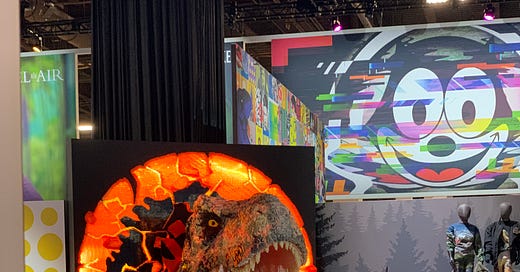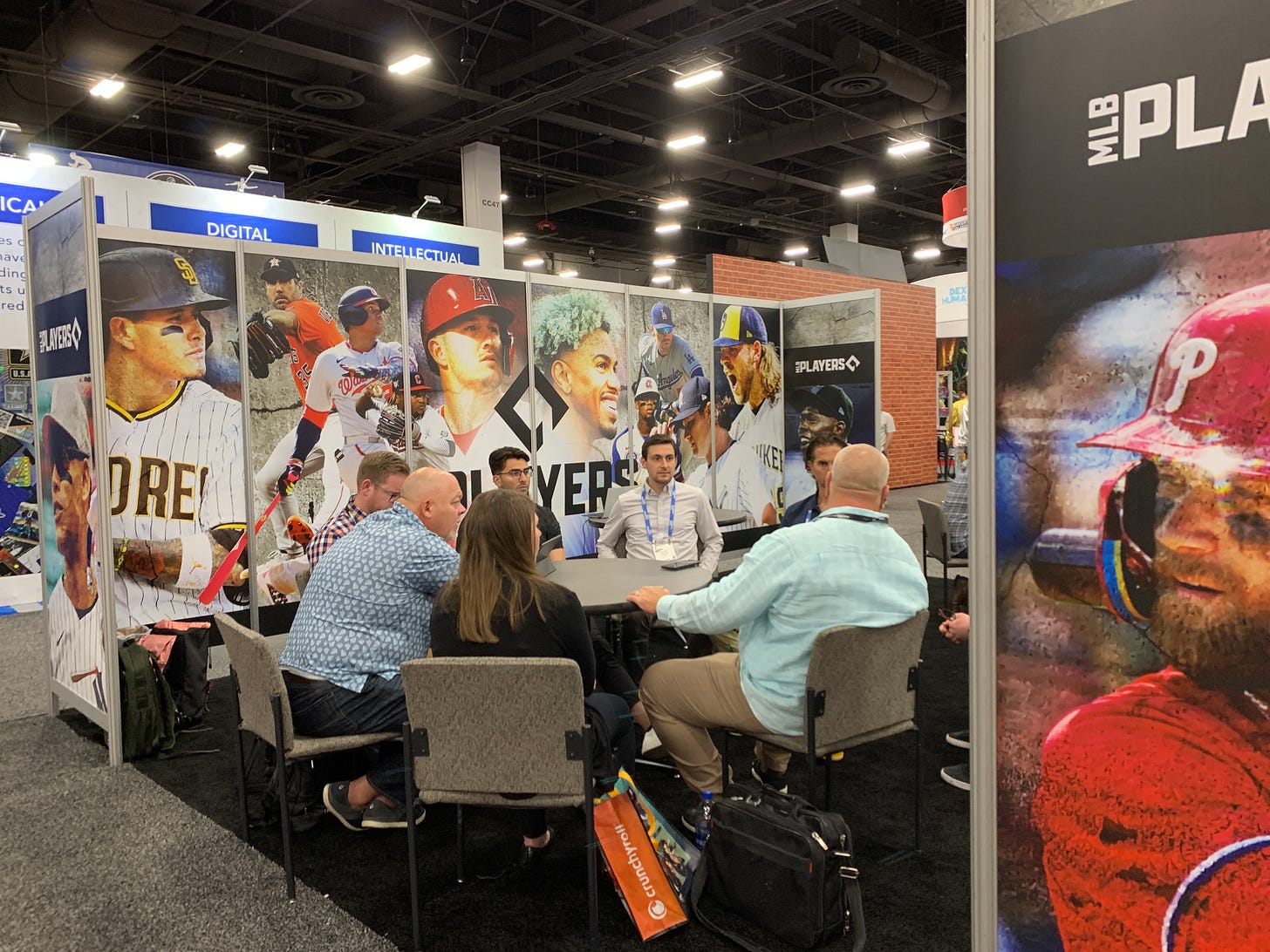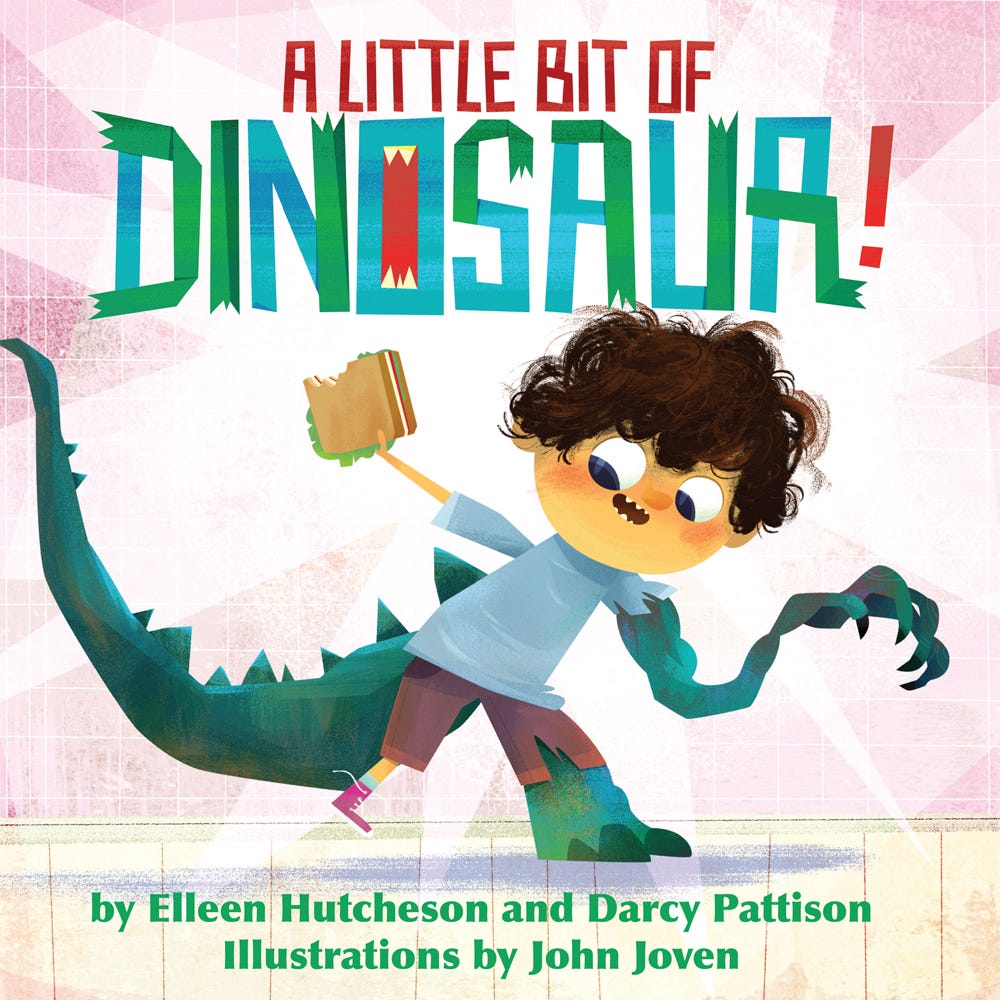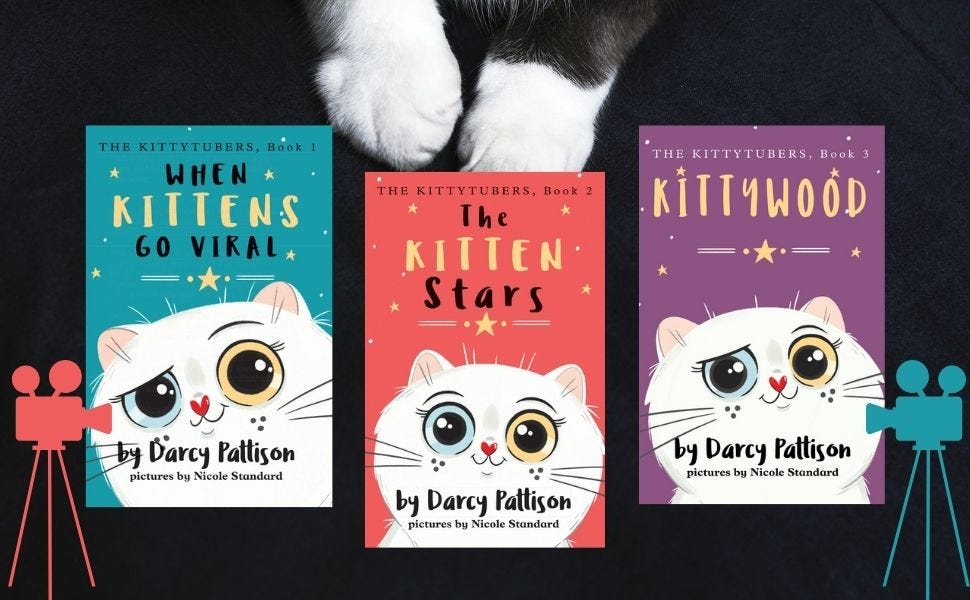I am just back from Licensing Expo 2022, where I walked twelve miles in two days, ate tapas, and marveled at the ingenuity of creatives. The annual convention in Las Vegas is where folks from many disciplines overlap as they sell intellectual property (IP) rights.
Have you bought a Harry Potter t-shirt? That required a licensing fee to use the image. Pooh Bear toys are licensed. What about Frozen toothbrushes? Licensed. Any time a piece of IP is used, there should be a contract/license, and there’s the possibility of a fee. How much? Anything from $1 to millions.
Attending the Licensing Expo as an Independent Publisher
I wanted to attend the Expo in 2020, but - COVID. So, this was my year and I learned so much!
NO BOOTH. I knew better than to try for a booth. Besides the astronomical fees ($35,000 or so) I wanted to look around first. Good thing. The booths are works of art, with huge billboards, 30-foot blow-up dragons, a Jurassic Park T. rex from Legos that took three months to build, and everything in between. Smaller booths, mostly representing illustrators were decorated with wall panels showing a range of styles. A few sadder booths were those with weak brands and weak presentation. I’m glad I looked this year; I doubt I’ll leap next year either!
This T. rex was made from Legos and took three months to assemble.
MEETINGS. Once you register for the Expo, you are allowed to schedule meetings with other attendees. This is where the big business makes deals.
Meetings were scheduled inside Pac-Man!
As I walked around to observe, the meetings were intense. Presenters had iPads or laptop computers displaying a pitch deck, essentially a Powerpoint presentation. Often a team of presenters faced off with one or two representatives of the company. See the MLB photo below. If I go next year and have more meetings, I’ll definitely brush up on my Powerpoint skills.
PRODUCTS. Fascinating was the array of products shown and represented. There are broad categories: toys, health and beauty, clothing/fashion, stationary, and so on. Within each category, brands are figuring out how to acquire and keep customers.
It’s a simple decision for some companies to license a product. Let’s say you manufacture toothbrushes. They are a dime a dozen, commodity pricing. But if you license an image of Frozen or a Marvel hero, suddenly you can charge more and expect an increase in sales. The key is in budgeting for the licensing fees, setting a correct price, and delivery of the product to consumers interested in that brand.
DEALS. So, what deals could a children’s book author expect? I went to talk with animation companies and toy companies. I went with HOPE, but realistic expectations.
First, let me explain why this was the right year to go. My book, A LITTLE BIT OF DINOSAUR, is experiencing a breakout year on the EPIC! app. Published in February, 2021, it received a starred Kirkus review, a Eureka! NonFiction Honor, and the Arkansiana Award. On EPIC, it’s had 780,000 reads. It’s on track for 1 million reads by the end of the second quarter 2022. The question was this: would 780,000+ reads get respect in this world of licensing?
If I had 780,000 SALES, it would have been no question. Since it was reads on an app, it didn’t overwhelm folks. They all understood that the networks are going into streaming services, so our discussions need to change from sales to reads, or at least accommodate that statistic some way. However, no one knew if that figure was just good sales or phenomenal sales.
And always, there was the comment/question: This is great, but what else?
They wanted to know if there would be a sequel. Did I have other licensing deals? What other properties did my company have? Where was the money trail?
The Expo is about big deals, with lots on the line. Before lining up for a deal, they want to know much more!
SMALL DEALS. However, I did talk with a startup company who is doing virtual reality for kids. They want picture books with fun illustrations to format for their platform. The CEO loved my catalog and wants to do a deal for 3-5 books to start, with more to come. However, as a startup, they were there to make other deals to translate their nascent company into a larger, stronger company. If those deals made, then they’d take my books for sure. It’s a wait and see sort of thing. But it’s also the sort of deal that you’ll make at first. If it goes through, it will lend credibility for the next deal that you hope will be bigger.
ANIMATION. Earlier this year, I attended a virtual conference for Kidscreen Summit, the conference for those interested in animation. To attend the full conference in person in Miami would be very expensive, so I was glad it was virtual. I had a pitch deck for my KITTYTUBERS series, which I think would be fantastic as an animated series. I registered early enough to get two pitch sessions, with Disney Junior and Sesame Workshop (they both eventually passed). It was another learning curve, figuring out how to translate a book property to animation. At the Licensing Expo, a few animation companies attended, so again, I pitched. Each time, I’m learning more about what they look for, what questions they ask, and so on. Always, the book’s sales numbers need to be stellar! Don’t even think about this without great sales to back up a pitch.
There was the inevitable question: This is great, but what else?
Book 4, KITTEN FRIENDS is slated for Fall, 2022, which helped. They want to know what else you are doing to develop a brand, to add value to the property. More books is good. But perhaps t-shirts, stickers, and so on would help, if (and only if) the sales are there.
LAWYERS AND AGENTS. At Kidscreen Summit, I watched one webinar moderated by an entertainment lawyer. This is a specialized lawyer who knows the ins and outs of copyrights, trademarks, and of contracts in the animation and licensing worlds. I had planned to attend a conference in Austin where the lawyer lived, so I took her to breakfast. I was pleased when we hit it off and signed on for her to handle any potential contracts.
Going into Licensing Expo, I knew I would rely on this lawyer for any potential contracts, and that meant I probably had little interest in agents. I’m glad I knew this because the licensing agencies were out in force. If I had been interested, I could have set up many meetings seeking representation. Agencies would have been interested in representing Mims House, and my entire catalog, not just one or two properties.
It’s always an option to look for an agency, but for now, I’m happy knowing that I have a lawyer backing me up.
THE FUTURE. Overall, the Licensing Expo has helped me look deeper at Mims House as a brand. Because I have several series, my books tend to have a cohesive feel. But more than that, how can I build my company as a brand? That’s what I’ll look toward in the coming year.
Resources: There are many books about licensing IP. This is one I’ve read, though maybe not the most thorough or the most related to book IP.
Key, Stephen. One Simple Idea: Turn Your Dreams into a Licensing Goldmine While Letting Others Do the Work









Thanks for sharing your experience at this type of expo. I hope your deal with the kids' virtual reality start-up does through. ...Funny thing, when reading this I thought of the show Halt and Catch Fire :-)
Hey! First EVERYTHING is negotiable. Just because an illustrator says something, doesn’t mean you can’t find a middle ground that meets the needs of both!
Usually, you contract for illustrations for a book and the contract is based on that. You can do a royalty share or a work-for-hire contract, whatever meets your needs and the illustrator will agree to. Often a work-for-hire contract is for all rights, which means you can use the art for anything you like.
However, for a royalty share contract, or as part of the negotiations for a work-for-hire contract, if you want to use the illustrations outside the book, say for stickers, calendars, basis of a plush doll, then you are asking for more rights. The illustrator will often ask for additional fees for licensing these extra rights.
It’s all in the contract. Did you provide the contract, or did they? I ALWAYS provide my own contracts, so I can control all of that.
Darcy